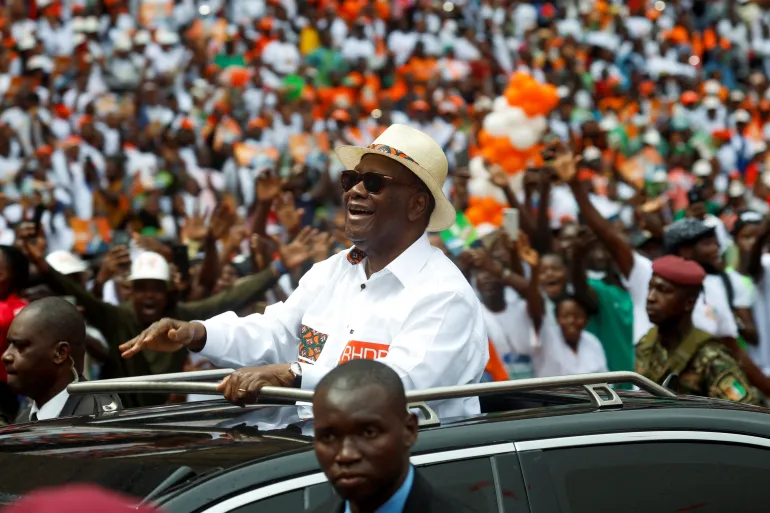Cliff Notes – Ivory Coast President Ouattara seeks fourth term
- President Alassane Ouattara confirmed his candidacy for a fourth term in the October 25 presidential election amid rising tensions over the exclusion of notable opposition candidates.
- Critics argue that his bid for another term is unconstitutional, as two of his main rivals have been barred from the race under controversial legal rulings.
Ivory Coast President Ouattara seeks fourth term
Ivory Coast President Alassane Ouattara said on Tuesday that he will seek a fourth term in the country’s October 25 presidential election, while tensions rise over the exclusion of several prominent opposition candidates.
Ouattara had been nominated by his party, the Rally of Houphouetists for Democracy and Peace (RHDP), but he waited until Tuesday to confirm he would run.

The opposition, however, has said a fourth term would be unconstitutional.
“I am a candidate because the constitution of our country allows me to run for another term and my health permits it,” Ouattara said.
Who is Alassane Ouattara?
The 83-year-old Ouattara is a former international banker and has led Ivory Coast since 2011. Previously, he had said he would like to step down.
Ouattara, an economist trained in the US, has long pitched himself as a savvy technocrat capable of delivering steady growth.
The numbers support him, with the IMF projecting GDP growth of 6.3% this year, matching the average from the past decade.
The shadow of election violence
Ouattara has made deals that helped him win two earlier reelections and stopped the kind of widespread violence that happened after he beat Laurent Gbagbo in 2010.
Gbagbo’s refusal to accept defeat sparked a brief civil war that killed over 3,000 people and ended only when he was arrested in a bunker at his Abidjan residence.
After having served his limit of two terms, Ouattara was only able to run for a third after a new constitution reset his time in office. The opposition boycotted the 2020 vote, and Ouattara won by a landslide. The vote, however, was marred when at least 85 people were killed in the ensuing unrest.
Political analyst Arthur Banga said Ouattara’s “primary success has been on the macroeconomic side” and restoring the Ivory Coast’s “international influence.”
Critics accuse the president of tightening his grip on power and strongly oppose his reelection bid.
The opposition has accused authorities of using legal means to target their rivals and exclude Ouattara’s opponents from elections.
Ouattara’s most prominent rival, Tidjane Thiam, was legally kept from running when a court ruled he was a French citizen at the time he declared his candidacy despite later renouncing his French nationality. Ivorian law bans dual nationals from running for president.
The government insists the judiciary operates independently.
The two main opposition parties have launched a joint campaign demanding the reinstatement of their barred leaders ahead of the presidential election.


